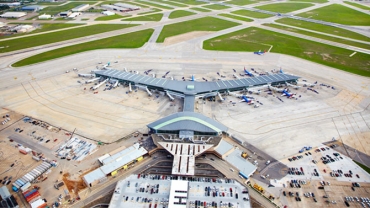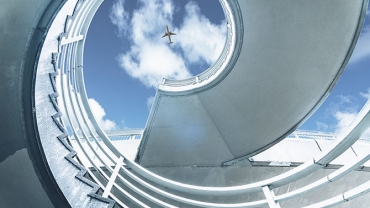
The airline industry is going through considerable turbulence because of the COVID-19 crisis, with a sudden drop in demand and changing customer habits. Yet the crisis can also be a catalyst for change, and the steps the carriers take today can have a meaningful impact on their performance once the demand for air travel resumes. To that end, airlines should focus on preserving their cash flow, revamping their operations, and transforming their business to meet their customers’ changing needs.
We estimate that GCC airlines could lose up to $10 billion in revenues (17% of total revenues) if the crisis lasts one fiscal quarter, and up to $23 billion (34% of total revenues) if it drags on for two quarters. The corresponding impact on profit ranges from $4 billion to $10 billion, a reduction of 40% to 100% of their baseline earnings estimate, depending on whether some variable costs are reduced.
Moreover, most airlines entered the crisis in a difficult position. The International Air Transport Association estimated that airlines worldwide, including in the GCC, are operating with approximately two months of liquidity. All airlines are bracing for a cash crunch as bookings decline precipitously and refund requests from passengers mount.
To respond to this crisis, GCC airlines should take action in six main areas.
- 1. Increase liquidity
- 2. Reduce fixed costs
- 3. Adjust the route network
- 4. Recalibrate the fleet
- 5. Prepare for a sales rebound post-crisis
- 6. Make a clear case for government support
1. Increase liquidity
Airlines should activate all cash-preservation measures, including payment deferrals with suppliers (while identifying those vendors that are critical for continuing operations), immediately claim all tax refunds that may be due, and delay all non-essential operating expenses and capital expenditures. Refinancing structures such as sale-and-lease-back arrangements on aircraft, engines, spare parts, and real estate can also increase liquidity.
2. Reduce fixed costs
Airlines should look at all aspects of fixed costs and determine where they can make cuts. For example, airlines can restructure salaries by introducing variable components, and by offering flexible work and leave arrangements (either paid or unpaid) for non-critical employees. Airlines can also seek to renegotiate payment terms in other areas, such as leases, trade commissions and incentives, credit card fees, and airport charges. They can also consider hedging future fuel requirements to take advantage of the recent drop in crude prices.
3. Adjust the route network
Most airlines have limited their reaction thus far to cancelling flights. That is understandable given how fast demand shrank, but airlines need more active measures to mitigate some of the lost revenue and prepare for a recovery. For example, they can rebalance their route networks to focus on those with highest overall revenue and greatest point-to-point traffic.
They can also triangulate routes — rather than simple out-and-back routes, carriers can add a third city, which gives them greater flexibility to choose among higher-demand destinations. By analysing routes and networks in this way while demand is low, they can ensure that they have a more productive route network in place once growth returns.
4. Recalibrate the fleet
Airlines should better manage their fleet, both during the crisis and in response to post-crisis changes. To the extent possible, airlines should use smaller aircraft on less popular routes, and conduct any needed maintenance and major upgrades on grounded aircraft. That will likely require a cost outlay, but it will be less expensive to do this kind of work on planes while demand is so low, rather than pulling them out of active service later on.
5. Prepare for a sales rebound post-crisis
Airlines should capitalise on the current period to take revenue-generating measures. That includes strengthening trade partnerships and offering increased loyalty benefits to customers, trade partners, and corporate travel departments to keep them engaged. Carriers can also tailor the customer journey around new passenger habits and preferences.
For example, as social distance becomes the norm and queuing is no longer allowed, airlines can use digital applications to limit in-person interactions and offer more online options for processes such as booking, check-in, and boarding.
6. Make a clear case for government support
Many governments around the world are now discussing bail-outs for the aviation sector. To have a credible case for such support, GCC airlines should have accurate, detailed information on the true impact of the crisis on their bottom line, along with a clear plan showing that they have been proactive in managing the situation themselves.
Given the stakes, this is not a time for tentative, half-hearted solutions. Airlines need to take steps to preserve cash and rethink how they operate — both during the crisis and afterward. Those that do so will position themselves to emerge stronger from this crisis.
This article originally appeared in April 2020 on Gulf News, in print and online.
About the authors
Marwan Bejjani and Camil Tahan are partners, Alessandro Borgogna is a senior executive advisor, and Vivek Madan is a manager, with Strategy& Middle East (part of the PwC network).
Contact us

















Menu